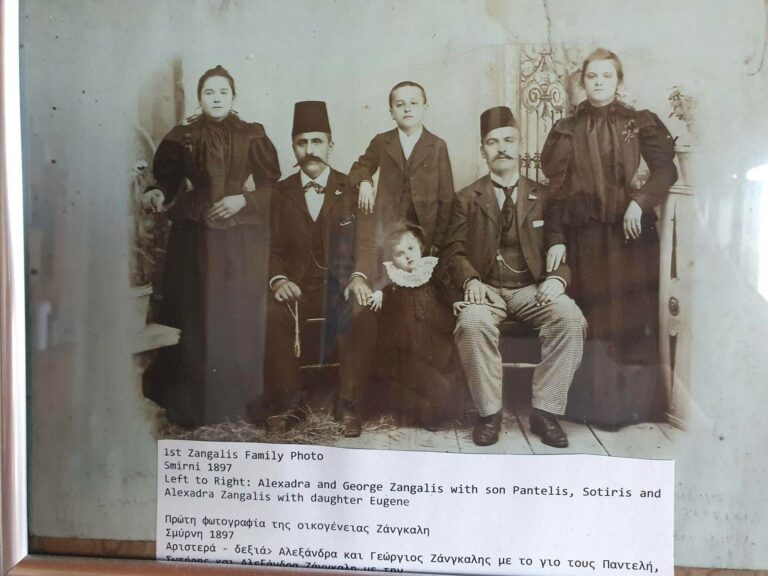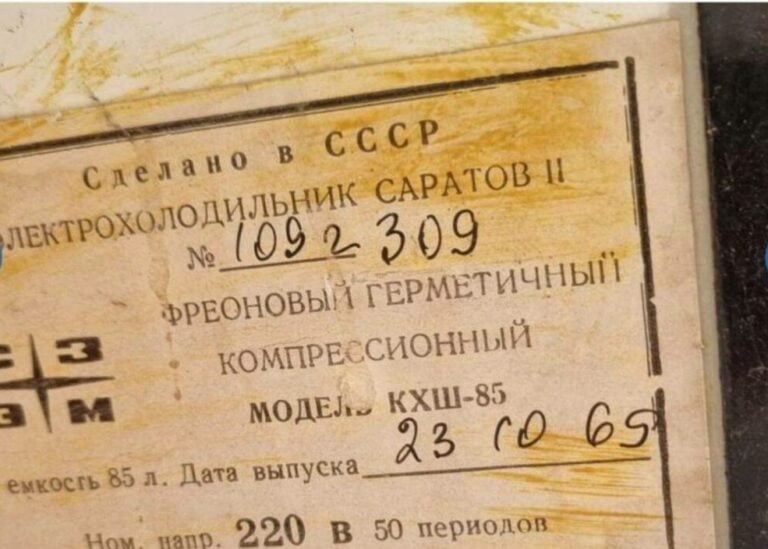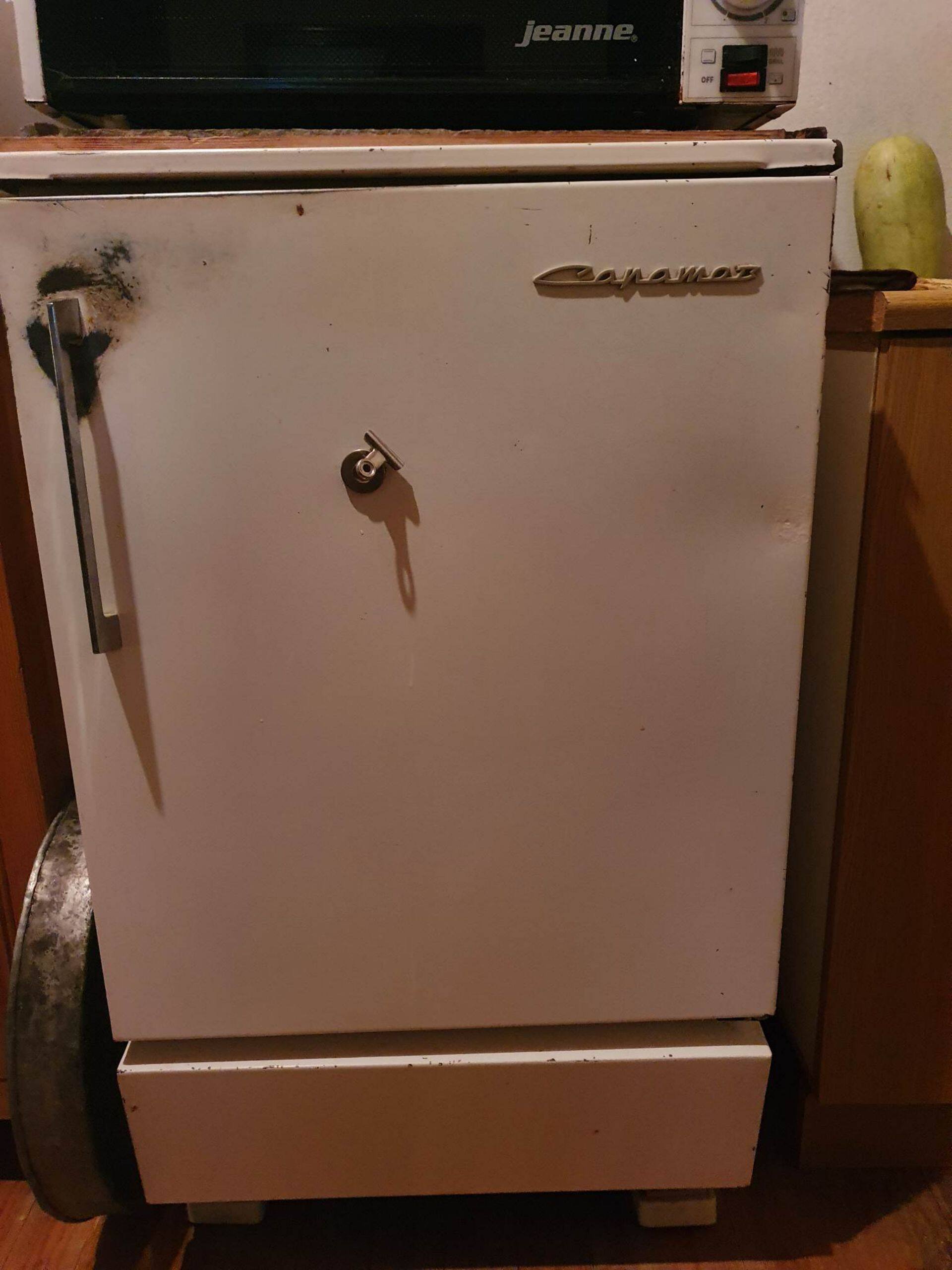George Zangalis had a final wish: to be cremated and have his ashes scattered in his cherished village. His daughter, Vasso, carried out this wish while currently in Epirus.
The village of Drymades was a place of few houses and even fewer residents. Prior to the events of the 1940 war and the German occupation, it bustled with life. Some villagers would venture abroad for work, but they always returned to their roots. Just like George’s grandfather, Pantelis Zangalis, who hailed from Smyrna and worked there before the 1922 destruction. However, the shadow of World War II descended, followed by forced displacement and a wave of internal and external migration, ultimately leaving the village deserted. This fate befell countless villages in the Greek countryside.
Drymades, located in Epirus, stands in close proximity to Albania, situated at an altitude of 1050 meters above sea level, just a 10-minute walk from the Albanian border. It was the birthplace of George Zangalis, the renowned unionist.
Zangalis only spent 17 years of his life in Drymades, but the memories of his birthplace and the familial warmth he experienced during his formative years profoundly shaped his identity and later life.
In 1990, the unforgettable Zangalis turned a dream into reality. He returned to Drymades and built a small, yet beautiful house on the ruins of his childhood home. In front of this house, a small marble plaque was placed, bearing the inscription:
“BUILT IN 1990 ON THE FOUNDATION OF THE HOUSE OF OUR PARENTS, PANTELIS AND KOSTANTIA ZANGALIS. THE CHILDREN”.

The Zangalis family was a family of eight, representing a modern tragedy, much like the plight of numerous other families who suffered during the post-civil war era due to the governments imposed on Greece by the Anglo-Americans and their puppet regimes.
While the two brothers and their mother, Kostantia, resided in the Soviet Union, their father remained in Greece. Tragically, their sister, Vasso, passed away at the age of 16 due to a lack of basic medications. George named his daughter after her. To avoid military service and the inevitable “transfer” to Gyaros and Makronisos, George came to Australia with his sister Tasia. Later, they brought their father, Pantelis, to Australia, where he eventually passed away. Kostantia, Vasso Zangalis’ grandmother, had also passed away, but in Tashkent within the Soviet Union.
In 1990, with the return of the two brothers from the Soviet Union, they reconstructed their ancestral home in the village of Drymades. After more than three decades, the family was reunited. Kostantia’s remains were transferred from Tashkent, Pantelis’ ashes from Melbourne, and they were laid to rest in the “Holy Places,” within their village.
Since then, the house in Drymades has become a point of reference. It stands as a monument for pilgrims and a place where George Zangalis spent many summers with his beloved Kavel.
Inside the house, as Vasso Znagalis informs us, there is a refrigerator that George’s brothers brought from Russia. Remarkably, after so many decades, it still functions like a Swiss watch. “It still works,” Vaso remarks, much like the old photos adorning the walls of the house, serving as reminders of their roots and history, keeping them firmly grounded.
Today, Vasso is in Drymades with her family and her mother, Kavel. On September 24th, they took George’s ashes and placed them in the family’s communal grave.

“Two years and five months after his passing,” says Vasso Zangalis, “we fulfilled my father’s last wish and brought his ashes to the village where he was born on January 15, 1931. He lived only a few years in the village, but those were formative years for his personality that marked his entire life.
My father was born in a village without electricity, with water sourced from a spring and carried in jugs. To survive, they relied on goats and a small plot of land to grow wheat, which they would grind into flour for their bread.
We held a small ceremony in the village, a memorial gathering. My cousin Panagiotis Sikaras came from Athens to attend, and I greatly appreciated it. A schoolmate of my father also came, which deeply moved me.
He mentioned that they belonged to different political factions, but it didn’t greatly affect their very good friendship and mutual respect.
Another speaker at the memorial was Panagiotis Tsounis from the neighboring village of Pogoniani. He focused on the great return – the return to Ithaca. He couldn’t come himself when he was alive, but his wish for his ashes to come to his homeland, to his beloved village of Drymades, was fulfilled.
I am proud of my father’s contribution through his well-known social work in Australia, which was recognised by the labor movement and the broader community. My father’s life was characterised by his selfless dedication to the struggles for refugees’ rights, immigrants’ access to radio and television, multiculturalism, teaching immigrant languages in state schools, and, in general, workers’ rights.
Thank you, father – I am proud of you, and I wouldn’t change you for anyone!”
Vasso will stay in Greece for a few months. She wrote to enroll her children – Georgia and Aris – in the elementary school in Kalpaki.
We wish them a pleasant time, and we hope her children will return to Australia with a strong grounding in Greek culture and language.










